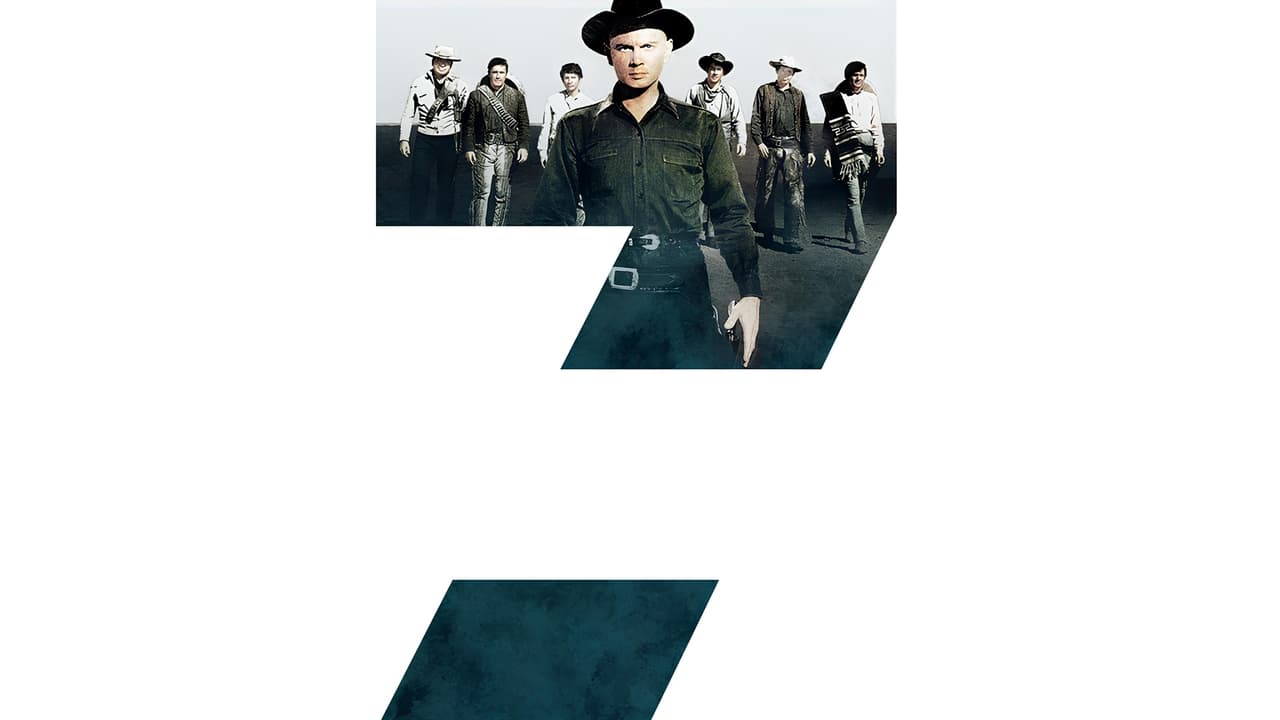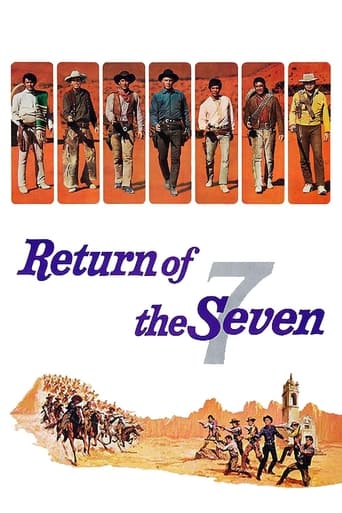

There are so many iterations of 'The Magnificent Seven' that whenever one pops up on cable I have to check whether I've seen it before or not. This one turns out to be the actual sequel to the original film, but it ran as "Return of the Seven" on Encore Westerns, so that was another element of confusion. With Yul Brynner in the cast though, at least there was some connection to the earlier film.I can't say I'm surprised that Brynner didn't want Steve McQueen to appear in this follow up film. McQueen gave the star fits on the set of "The Magnificent Seven" every time he improvised some little mannerism designed to draw attention to himself at the expense of the leading man. By contrast, Robert Fuller was virtually colorless in replacing McQueen's character Vin; you almost didn't consider him to be the second in command.As for the rest, Warren Oates stood out mainly by virtue of considering himself a ladies' man, an idea I found I had to force myself to acknowledge for the sake of the story but it made me chuckle throughout. But he did prove to be a stand up guy for the heroes, he made it a point to stay strong for the mission after the village elder tried to convince Chris (Brynner) that he should give up the fight.The only other character of note here was portrayed by Claude Akins in a role not unlike the one he had in the same year's "Incident at Phantom Hill". In that one, Akins decided it was a pretty good idea to attack six Cheyenne Indians all by himself with disastrous results. Here he decided to step in front of Brynner's character when he was about to get shot by the Mexican outlaw Lorca (Emilio Fernandez). Not a good career move if this were real life.
... View MoreYul Brynner returns as gunfighter Chris, who is recruited by old friend Chico(now played by Julian Mateos, taking over from Horst Bucholz) to return to his village that has been raided by a powerful landowner, who has kidnapped the men for his own purposes. Chris agrees to help, and enlists old friend Vin(Robert Fuller, taking over from Steve McQueen) and new members of the "7", including actors Claude Akins & Warren Oates.Disappointing sequel has some good action, but a limp plot, and is generally an inferior rehash of the first, though Brynner is still good, and Fuller a decent substitute for McQueen.This must have done well though, since two more sequels were made(without Brynner!) Haven't seen them, don't plan to.
... View MoreReturn of the Magnificent Seven (1966) ** 1/2 (out of 4) Chris (Yul Brynner) and Vin (Robert Fuller) hear about some bandits who have kidnapped all the men of three villages and have headed off into the desert with them. Chris decides to gather up five more men and head out to take on a mission where they're be greatly outnumbered.If you thought any sequel could live up to THE MAGNIFICENT SEVEN then you might not want to watch this. I mean, that John Sturges' film is a pure classic (as if the film it's based on) so even thinking a sequel would live up to it isn't the best thing to think. With that said, RETURN OF THE SEVEN is actually a mildly entertaining movie as long as you're not expecting for it to do the impossible.Larry Cohen's screenplay doesn't offer up any sorts of great twists or original moments but it does know exactly what it wants to deliver. A decent story with a great cast and of course a lot of action. The action scenes are certainly what makes this film so memorable and that's especially true for the finale where we get some terrific gunfights with some dynamite thrown in for fun. Director Burt Kennedy handles all of this quite well and at least keeps the film moving.Brynner is always entertaining to watch and he's good here. I thought he did a nice job slipping back into the role, although it's certainly not as electrifying as the original. Fuller, Julian Mateos, Claude Akins, Fernando Rey, Emilio Fernandez and especially Warren Oates all offer up some nice support. The cinematography is also very good with Elmer Bernstein's score still packing a punch. Sure, this sequel was made to cash in on the first film but on its own it's a decent entertainment.
... View MoreTen years after 'The Seven' saved a Mexican village from a group of bandits it falls prey to another gang; this one rides into town, rounds up all the men then takes them away. The men taken away include Chico; one of the original seven who stayed in the village and married a local girl at the end of the previous film. She and her son seek out Chris once again and he and Vin set about recruiting a new Seven to find out what happened to the men and return them to their village. It doesn't take long before they find the men; they had been captured by a rich and powerful man called Lorca who was using them as slave labour to build a church in memory of his two sons. Chris and his men liberate the captured men with surprising ease but Lorca has no intention of letting him keep them; if they are to live free they must stand up and fight when Lorca and his men return.If the first film had never been made this would probably be considered just another B-western, albeit one made in Spain rather than California... unfortunately for this film though it will always be compared to the original 'Magnificent Seven' and when compared to that it is a distinctly inferior product. Yul Brynner reprises his role as Chris and does a decent job; unfortunately he is the only one of the original cast to return; Vin may be back but this time he is played by Robert Fuller. He does a good enough job but he is no Steve McQueen! The rest of the cast do well enough but lacks the star quality of the original. There is plenty of action with plenty of shooting and in the final seen plenty of explosions after a case of dynamite is fortuitously found. Overall this is a very average film that passes the time well enough if it is on television but is hardly a 'must see'.
... View More